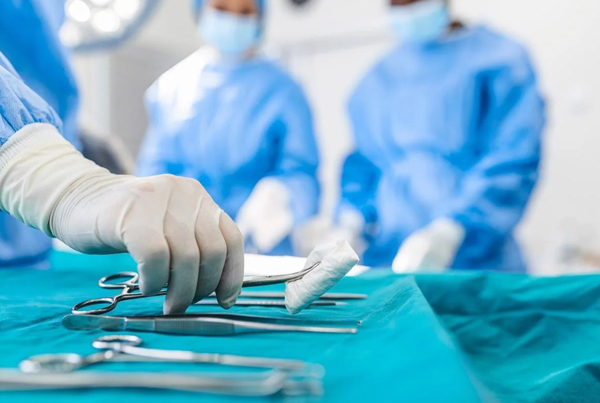
Lung cancer is one of the most common and deadly types of cancer, and early detection is crucial for increasing the chances of survival. Regular checkups are an essential part of detecting lung cancer early. For those in the Noida area, “Lung Cancer Treatment in noida“ and “Best Oncologist in Noida” are excellent resources for diagnosis and treatment.
First, let’s define what lung cancer is. Lung cancer is a type of cancer that starts in the lungs. The lungs are the organs in the chest that take in oxygen and release carbon dioxide. Lung cancer develops when lung cells begin to grow and divide uncontrollably, forming a tumor. These tumors can be benign (non-cancerous) or malignant (cancerous). Malignant tumors can invade nearby tissue and spread to other body parts through the bloodstream or lymph system.
So, why is a checkup necessary? Early detection is key when it comes to lung cancer. When lung cancer is caught in its early stages, the five-year survival rate is 56%. However, when it’s caught in its later stages, the five-year survival rate drops to just 5%. A checkup is essential to early detection because it allows doctors to identify warning signs and symptoms of lung cancer before they become more severe.
A doctor will examine the patient during a checkup and ask about their medical history. They may also order imaging tests, such as a CT scan or MRI, to look for any lung abnormalities. If something suspicious is found, a biopsy may be performed to confirm whether or not it’s cancerous.
For those at high risk of lung cancer, such as smokers or people with a history of exposure to certain chemicals, the American Cancer Society recommends getting screened with a low-dose CT scan every year.
Now, let’s talk about the warning signs of lung cancer that you shouldn’t ignore. These include:
- Persistent cough: A persistent cough that doesn’t go away or gets worse over time can be a sign of lung cancer.
- Chest pain: Chest pain that doesn’t go away or gets worse over time can be a sign of lung cancer.
- Shortness of breath: Shortness or difficulty breathing can be a sign of lung cancer, especially if it occurs with other symptoms.
- Hoarseness: Hoarseness or a change in the voice can be a sign of lung cancer, especially if it occurs with other symptoms.
- Loss of appetite and weight loss: Unexplained weight loss and loss of appetite can be a sign of lung cancer.
If you experience any of these symptoms, it’s important to schedule a checkup as soon as possible.
Regarding treatment, there are several options available for lung cancer, including surgery, radiation therapy, chemotherapy, targeted therapy, and immunotherapy. The treatment plan will depend on the stage and type of cancer and the patient’s overall health.
“Cancer hospital in Noida” offers state-of-the-art treatment options for lung cancer patients and is staffed by some of the best oncologists in Noida. Our oncologists are specially trained in diagnosing and treating lung cancer and work with a team of specialists to provide personalized and comprehensive care.
Surgery is one of the most common treatments for lung cancer, and it’s usually the first option for patients with early-stage lung cancer. Surgery aims to remove the tumor and any surrounding tissue that may contain cancer cells. Depending on the size and location of the tumor, the surgery may involve removing a portion of the lung (lobectomy) or the entire lung (pneumonectomy).
Radiation therapy is another treatment option for lung cancer. It uses high-energy rays to kill cancer cells and shrink tumors. Radiation therapy can be used before or after surgery to shrink the tumor, or it can be used as the main treatment for patients who can’t have surgery.
Chemotherapy is a treatment that uses drugs to kill cancer cells. It can be given as a pill or injection and used alone or in combination with other treatments, such as surgery or radiation therapy.
Targeted therapy is a newer treatment that targets specific molecules in cancer cells to stop them from growing and spreading. This therapy is usually used in combination with other treatments, such as chemotherapy.
Immunotherapy is a treatment that helps the body’s immune system fight cancer cells. It works by blocking the cancer cell’s ability to evade the immune system or by boosting the immune system’s ability to find and attack cancer cells.
conclusion
Regular checkups are essential for the early detection of lung cancer and increasing the chances of survival. If you’re experiencing any warning signs of lung cancer, schedule a checkup as soon as possible. “Cancer hospital in Noida” and “Best Oncologist in Noida” are excellent resources for those in the Noida area, offering state-of-the-art treatment options and personalized care.
Frequently Asked Questions
Q: What are the risk factors for lung cancer?
A: Smoking, exposure to secondhand smoke, certain chemicals and pollutants, family history, personal history of lung disease, exposure to radon gas.
Q: How is lung cancer diagnosed?
A: Imaging tests (CT, MRI, PET), bronchoscopy, biopsy
Q: How long does treatment for lung cancer typically take?
A: Treatment duration varies depending on the stage and type of lung cancer and the patient’s overall health.
Q: Is there a cure for lung cancer?
A: The prognosis for lung cancer varies depending on the stage and type of cancer and the patient’s overall health. In some cases, lung cancer can be cured with treatment, but in others, it may be managed as a chronic condition.
Q: Can lung cancer be prevented?
A: Quitting smoking, avoiding exposure to secondhand smoke, avoiding exposure to certain chemicals and pollutants, and getting screened for lung cancer can help reduce the risk of developing lung cancer.